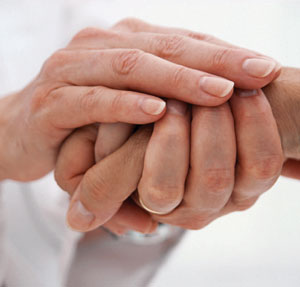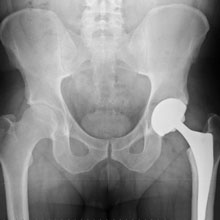What is Hospice?
Hospice is not a death sentence. It is an opportunity to live life to the fullest until you die.
I have been a Hospice volunteer since 1994. It is my passion. To be of service to others in such an important and intense time of life is an honor. The more I give, I am repaid tenfold. The criteria to qualify for Hospice is a diagnosed terminal illness that if it were to progress at the normal rate, you would only have six months to live. To be eligible a patient can’t be involved in treatment to try cure the illness. The doctor must write a referral for the patient to be evaluated for Hospice care. Once enrolled, if the patient lives to the six month timeframe they will be evaluated and reinstated in the program. Hospice provides many services that assist both the patient and the family.
I have had many conversations with family members and friends of a terminally ill patient who were anxious because of unresolved issues with the patient or just felt they needed to share something and had not done so. I always encourage them to make time to talk about the issues. It will be too late once the patient has passed. This can lead to the survivor feeling regret, sadness, guilt or frustration. Grief is natural but adding the pressure of not talking openly before someone dies can make the grieving process much harder. Many patients have talked with me about the importance of relationships in their life. They have never expressed regret about wishing they had more money, possessions or fame. It is so important to most people to know that they don’t have any unfinished business, which allows them to pass peacefully.
Once a patient has been diagnosed with a terminal illness, Hospice is the best way to have their wishes met. The Hospice team; Nurse, CNA, Chaplain, Social Worker, Medical Director, Volunteer Coordinator and Volunteers work together to accomplish the patients desires. This team effort helps address the patients complete needs; physical comfort, emotional and spiritual support. Treating the entire patient is very important. Then, after the patient passes the family has a great support system and Grief Counseling and groups available anytime there is a need. I have had many heart-to-heart talks with patients in addition to fun and silly times together. After every assignment I take time to reflect on the experience. I have always learned something from each patient. The patients and families have always thanked me and said how much my service and the Hospice services in general made a positive difference.
I encourage anyone interested in Hospice or in volunteering to call your local Hospice organization.
If you have questions, please contact me at [email protected]. Christina is also available for interviews or guest speaking engagements. Christina Lufkin, Author “Live with Purpose:Die with Dignity” www.christinalufkin.weebly.com
Comments by Dr. Pullen: Thanks for this post Ms. Lufkin. I hope to have the chance to post more of your experiences in the future. Over the years I have had nothing but positive experiences with hospice. When my Mom passed last spring Hospice was involved and they definitely made for a better experience all around. With their help saying goodbye was a better experience.
Hospice has several major advantages from a flexibility and financial standpoint also for terminal patients. The Medicare reimbursement for Hospice is on a per-diem basis, and the Hospice team has a great deal of flexibility in choosing services to provide to patients, many of which would not be eligible for regular Medicare coverage. In addition here is evidence showing that patients in Hospice live longer than case controlled patients not on hospice. I have had more than one patient who, with the excellent care Hospice, was able to prove my impression of a less-than-six-month life expectancy wrong, and at least one of these patients is home and doing well over 3 years later, a Hospice graduate. The key to getting the real benefits of Hospice is to begin hospice well before the anticipated time of death. Although Hospice can help the patient with just a few days to live, their real strength is when they become involved weeks or months before death. That way they can help with all of their expertise, love and care during the dying process for both the patient and their loved ones.













Hospice gave one of my best friends an ounce of dignity at the end of his life and I will be forever grateful to them for that. You know how much I love the storytelling nature of your wonderful book and I consider it an honor to have been chosen to write the review for it.
Thanks Carol! You have been such a blessing to me. I am happy that you had a good experience with Hospice. I can’t thank you enough for your support, encouragement and guidance!
Thanks for your post Jennifer. I am so happy that you had such a great experience with your Daddy’s last time here. This is exaclty why I want to spread the word about the many valuable services Hospice provides!
Hospice enabled my Mother and me to spend the last 3 weeks of my Daddy’s life with him, in our home. He was in his beloved bedroom, with us by his side. During the time we had Hospice’ help & support I learned so much about life passages.. and how beautiful and sacred every second of life is. Hospice Care is a blessing..a sacred gift… as we travel with our loved one, as far as we can, until they enter the portal to their eternal home.
Jennifer,
I am so happy to hear you had such a valuable experience with Hospice. It is truly my passion.